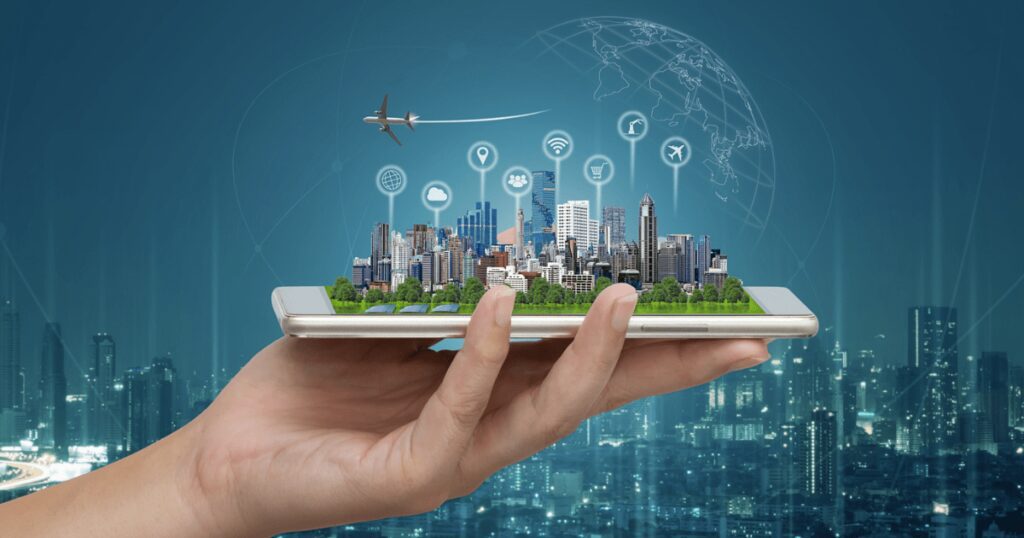IoT technology, which connects devices and allows them to share data, can play a crucial role in promoting sustainability. By collecting real-time data, IoT devices help organizations and individuals make better decisions to reduce resource consumption and environmental impact. IoT enables energy efficiency by monitoring energy usage and optimizing consumption. It also helps in waste management by monitoring fill levels and optimizing collection routes. IoT can conserve water by detecting leaks and optimizing irrigation systems. However, challenges such as data privacy, electronic waste management, and scalability need to be addressed to fully realize the potential of IoT in sustainability.
IoT and Sustainability: Creating a Smarter, Greener Future
Introduction
The Internet of Things (IoT) refers to the network of physical devices, vehicles, and appliances embedded with sensors, software, and connectivity, enabling them to connect and exchange data. Sustainability, on the other hand, focuses on meeting the needs of the present without compromising the ability of future generations to meet their own needs. When IoT technology is used to promote sustainability, it paves the way for a smarter, greener future.
The Role of IoT in Sustainability
IoT plays a crucial role in sustainability by enabling devices, systems, and processes to collect, analyze, and share real-time data, which helps organizations and individuals make better decisions to reduce resource consumption and environmental impact. The ability of connected devices to monitor and control energy usage, waste management, and optimize resource utilization is transforming various sectors and leading to improved sustainability practices.
Energy Efficiency
The IoT enables energy efficiency by connecting smart energy meters, appliances, and systems to collect data on energy usage patterns. With access to real-time data, organizations and individuals can identify areas of high energy consumption, optimize usage, and implement strategies to reduce waste. Smart home systems, for example, can automatically adjust temperature settings, lighting, and other variables to minimize energy consumption, resulting in significant cost and energy savings.
Waste Management
IoT-based waste management systems offer real-time data collection, monitoring, and analysis to optimize waste collection routes, reduce operation costs, and minimize environmental impact. Connected sensors placed in waste bins can monitor fill levels and send alerts to waste management companies, enabling efficient and timely collection. By optimizing routes, resources like fuel and time are conserved. Additionally, IoT technology can facilitate waste sorting and recycling practices, promoting a more circular economy.
Water Conservation
IoT-enabled sensors and systems can help conserve water by monitoring usage, detecting leaks, and optimizing irrigation systems in agriculture. Smart water meters installed in homes and buildings can provide real-time data on water consumption, helping individuals and organizations make informed decisions about usage and identify any wasteful practices. In agriculture, IoT-based irrigation systems can analyze soil moisture levels, weather patterns, and plant needs, ensuring that water is used efficiently, reducing waste, and safeguarding this precious resource.
Challenges and Solutions
While IoT presents numerous opportunities for sustainability, there are challenges that need to be addressed to maximize its potential. One significant concern is data privacy and security. As more devices exchange sensitive information, safeguarding data becomes crucial. Measures such as secure communication protocols, encryption, and regular updates are necessary to protect privacy and prevent unauthorized access.
Another challenge is the rapid proliferation of IoT devices and the resulting electronic waste. These devices often have short life cycles and can lead to significant environmental issues if not disposed of properly. IoT manufacturers and consumers should prioritize sustainable design, recycling, and responsible disposal to minimize the ecological footprint of IoT devices.
Data Management and Scalability
The sheer volume of data generated by interconnected devices can pose challenges in terms of storage, analysis, and managing scalability. Advanced data analytics techniques, cloud computing, and edge computing enable efficient data processing, storage, and scalability. By leveraging these technologies, organizations can derive valuable insights from vast amounts of data and make informed decisions to enhance sustainability practices.
Conclusion
The convergence of IoT and sustainability presents numerous opportunities for creating a smarter, greener future. By leveraging the power of IoT technology, organizations and individuals can optimize resource utilization, reduce waste, and make data-driven decisions to enhance sustainability practices. However, to fully realize the potential of IoT in promoting sustainability, challenges such as data privacy, electronic waste management, and scalability must be effectively addressed. With the right strategies in place, IoT can become a powerful tool in creating a sustainable world for generations to come.
